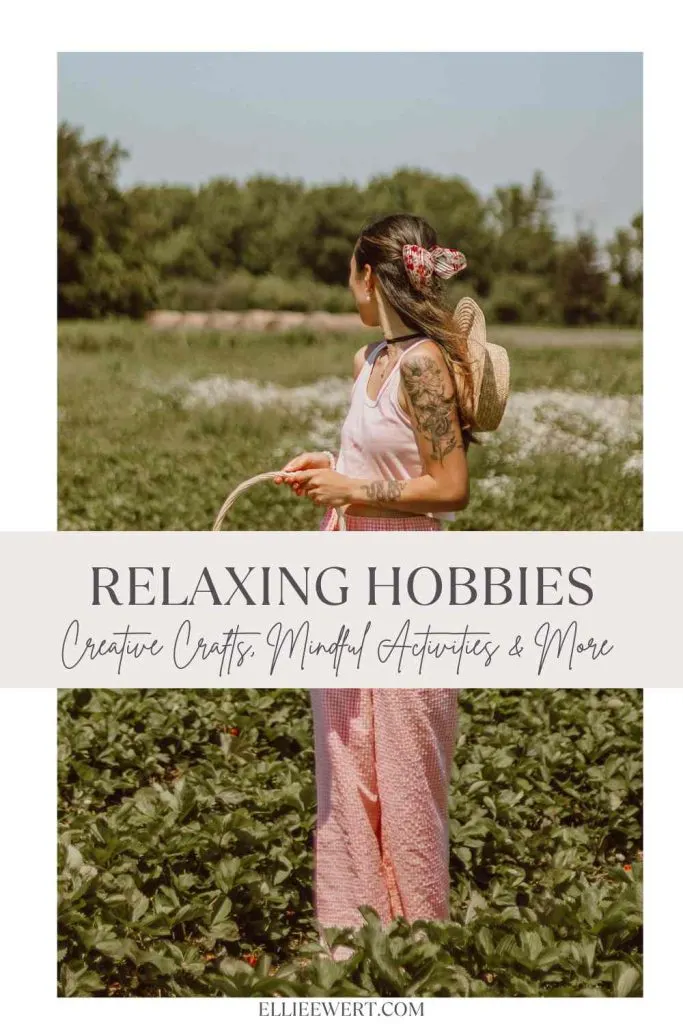Did you know that 45% of adults struggle with stress daily?
Finding solace in relaxing hobbies can be the key to unwinding and rejuvenating your mind. Engaging in activities like painting, gardening, or even birdwatching can provide a much-needed escape from the chaos of everyday life.
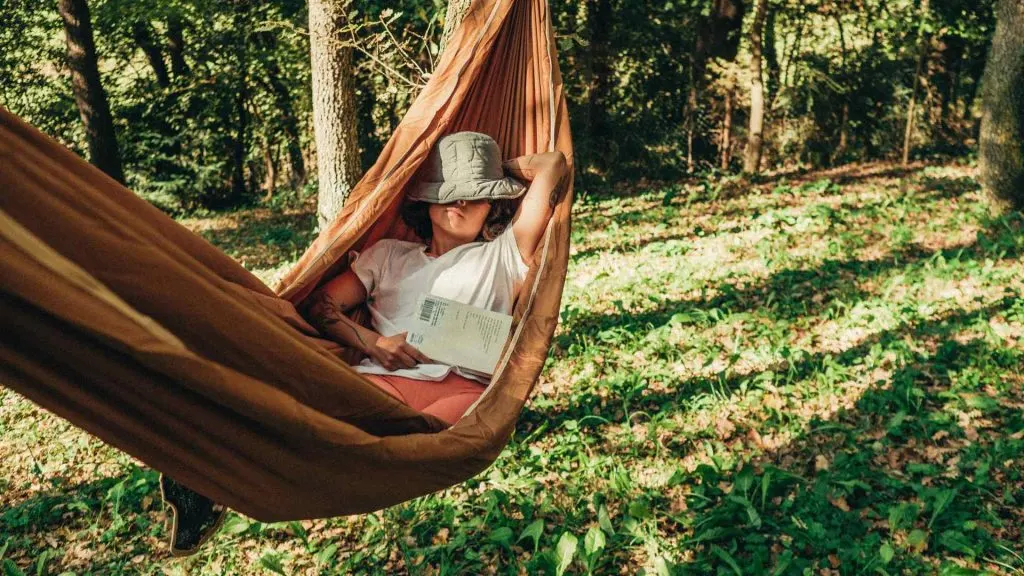
Relaxation Benefits
Stress Reduction
Engage in deep breathing exercises to lower stress levels effectively. These techniques can calm your mind and body swiftly.
Incorporate yoga or tai chi into your routine for physical activities that promote relaxation. These practices not only reduce stress but also improve flexibility and strength.
To create a serene atmosphere, play soothing music and use aromatherapy with essential oils at home.
Enhanced Creativity
Explore various art mediums such as painting, drawing, or sculpting to stimulate creativity. Trying different mediums can spark new ideas and perspectives.
Nature is a great muse for creative endeavors; take walks in natural settings to find inspiration for your projects.
Joining a creative community or attending workshops can provide valuable feedback and insights to enhance your artistic skills.
Improved Mood
Spending time outdoors can significantly boost your mood by increasing serotonin levels naturally. Nature has a calming effect on the mind and body, promoting overall well-being.
Engaging in hobbies that bring you joy and a sense of accomplishment can uplift your spirits and enhance your emotional state positively.
Surround yourself with positive influences, whether through supportive friends, inspiring books, or uplifting activities.
Better Sleep
Establishing a consistent bedtime routine is crucial for improving the quality of your sleep. Going to bed at the same time each night signals your body that it’s time to rest, leading to better sleep patterns.
Practice mindfulness meditation before bedtime to clear your mind of worries and prepare for a restful night’s sleep.
Avoiding screen time before sleeping helps reduce exposure to blue light, which can disrupt your circadian rhythm and hinder falling asleep easily.
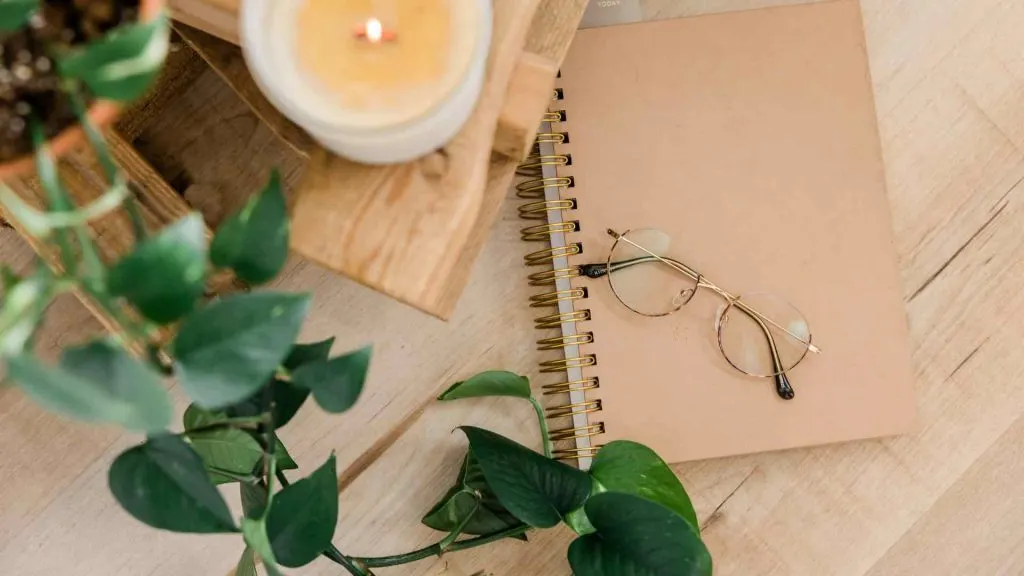
Choosing Hobbies
Personal Interests
When exploring hobbies, focus on activities that truly resonate with your passions and interests. Engage in hobbies that bring you joy and a sense of accomplishment. Embrace new hobbies that align with your personality, whether it’s painting, gardening, or cooking.
Consider hobbies that provide a fulfilling experience, such as reading for book lovers or hiking for nature enthusiasts.
Your hobbies should reflect your values and preferences, creating a space for relaxation and enjoyment in your life. Align your hobbies with what brings you the most satisfaction.
Try out various activities to discover what truly excites you. Whether it’s crafting, photography, or playing a musical instrument, choose hobbies that make you feel happy and fulfilled. Your hobbies should be an extension of yourself, allowing you to express your creativity and interests freely.
Time Availability
Prioritize hobbies that fit seamlessly into your daily routine without causing stress or overwhelm. Allocate specific time slots each day for pursuing your hobbies, ensuring they become an integral part of your schedule. Integrate relaxation activities into your daily life effortlessly.
Opt for hobbies that can be easily incorporated into short breaks or downtime during the day. Whether it’s journaling, yoga, or meditation, choose activities that help you unwind and relax quickly. Ensure that your chosen hobby doesn’t require extensive time commitments but rather enhances your overall well-being.
Create a balance between work responsibilities and leisure time by dedicating moments throughout the day to engage in relaxing activities. Choose hobbies that rejuvenate you mentally and physically without adding unnecessary pressure to your already busy schedule.
Accessibility
Select hobbies that are readily available either locally or online to ensure easy access to resources and materials. Consider the convenience of pursuing these activities without facing any significant obstacles. Explore options like painting classes at nearby art studios or online cooking workshops.
Look for hobby ideas that don’t require specialized equipment or extensive training, making them accessible to everyone regardless of their location. Utilize online platforms to connect with like-minded individuals who share similar interests and engage in virtual hobby groups for added motivation.
Take advantage of online tutorials and courses for hobbies that may not be prevalent in your area but still pique your interest. Platforms offering a wide range of hobby-related content can help you explore new passions from the comfort of your home at your own pace.
Skill Level
Begin with hobbies that match your current skill level to build confidence and competence gradually over time. Seek out beginner-friendly resources such as books, videos, or classes tailored for newcomers in a particular hobby niche. Challenge yourself with activities that allow room for growth and improvement.
Engage in hobbies that encourage continuous learning and skill development while providing a sense of accomplishment along the way.
Progress from basic techniques to more advanced skills as you gain proficiency in your chosen hobby domain. Embrace challenges that push you beyond your comfort zone while fostering personal growth.
Strive to expand your knowledge and expertise by experimenting with different aspects of a hobby to enhance creativity and innovation. Embrace the learning process wholeheartedly, celebrating each milestone achieved as you progress on your journey towards mastery.
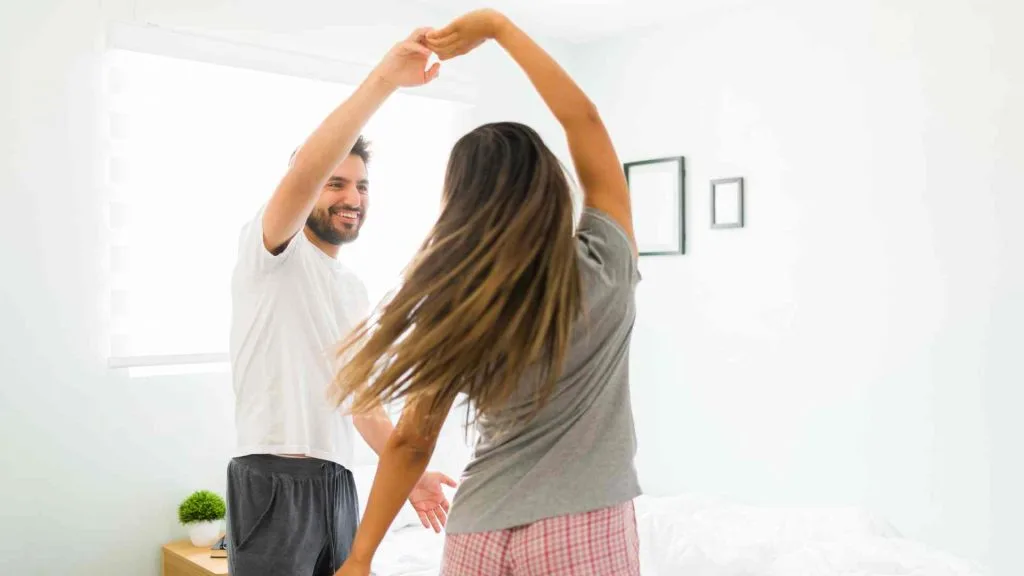
Creative Crafts
Needle Felting
Needle felting allows crafters to create charming felted animals or objects using specialized needles. Different types of wool and fibers can be combined to produce unique projects. Engage with online communities or workshops to enhance your needle felting skills.
Candle Making
Crafting candles provides a creative outlet for experimenting with scents and colors. Dive into various candle-making techniques such as soy wax or beeswax for different textures. Embrace sustainability by utilizing recycled materials in your candle-making endeavors.
Embroidery
Embroidery offers a creative side to personalizing clothing and accessories through intricate designs. Practice diverse embroidery stitches to elevate your creations. Beginners can kickstart their journey with embroidery kits or patterns tailored for skill enhancement.
Natural Dyeing
Natural dyeing involves using plant-based ingredients like fruits for organic fabric coloring. Explore methods like bundle dyeing or eco-printing for distinct patterns. Delve into the sustainable advantages of natural dyeing, aligning with eco-conscious crafting practices.
Mindful Activities
Meditation
Engage in mindfulness meditation daily to enhance mental clarity and focus on the present moment. Utilize guided meditation sessions to alleviate stress and anxiety effectively. Establish a serene meditation corner at home to ensure an undisturbed practice environment.
Embark on a journey of self-care through the practice of mindfulness meditation. By incorporating this meditative hobby into your routine, you can experience profound relaxation and inner peace. The act of focusing on your breath and thoughts during meditation aids in reducing negative emotions and promoting overall well-being.
Participate in virtual mindfulness meditation workshops to deepen your practice and connect with like-minded individuals. These sessions offer valuable guidance on techniques to improve concentration and cultivate a tranquil state of mind. Embrace the transformative power of mindfulness as you navigate through life’s challenges with resilience and composure.
Yoga
Discover the diverse world of yoga by exploring various styles such as Hatha, Vinyasa, or Restorative. Each style offers unique benefits for physical health, flexibility, and mental relaxation. Engage in online yoga classes or workshops from the comfort of your home to foster a consistent yoga practice that suits your schedule.
Immerse yourself in the art of yoga by prioritizing breathwork techniques and gentle movements during each session. This mindful approach enhances body awareness, reduces tension, and promotes a sense of calmness. Incorporate restorative yoga poses into your practice to unwind after a long day and nurture your body’s natural healing processes.
Enhance your overall well-being through regular yoga practice by focusing on alignment, balance, and mindfulness. Embrace the meditative aspects of yoga to quiet the mind, release stress, and cultivate a deeper connection between body and soul.
Journaling
Kickstart a journey of self-discovery by initiating a gratitude journaling practice. Reflect on daily blessings, achievements, or moments of joy to foster a positive mindset and gratitude attitude towards life’s experiences. Utilize journal prompts as creative tools for introspection, emotional healing, and personal growth.
Experiment with different journaling techniques such as bullet journaling or art journaling to unleash your creativity and express inner thoughts visually. Dive into the realm of artistic journaling where words merge seamlessly with colors, sketches, or collages to narrate personal stories or emotions uniquely.
Join online journaling communities or workshops to share insights, gain inspiration from others’ experiences, and foster a sense of belonging within a supportive network. Embrace the therapeutic benefits of journaling as a form of self-expression, reflection, and emotional release.
Reading
Expand your intellectual horizons by delving into diverse genres and authors through reading. Immerse yourself in fictional worlds, historical narratives, or thought-provoking non-fiction works to broaden your perspectives and stimulate cognitive engagement. Join virtual book clubs or reading circles to engage in lively discussions about literary works with fellow book enthusiasts.
Establish a cozy reading nook at home adorned with comfortable seating, soft lighting, and shelves filled with captivating books. Create an inviting space that encourages relaxation, focus, and uninterrupted reading sessions where you can escape into captivating stories or enlightening knowledge realms.
Indulge in the pleasure of reading as a form of escapism from daily stresses while nurturing intellectual curiosity and expanding vocabulary skills effortlessly.

Outdoor Pursuits
Gardening
Cultivating a garden can be a therapeutic and rewarding hobby. Planting flowers, herbs, or vegetables can bring joy and relaxation to your daily routine. By learning about composting and companion planting, you can enhance the health of your plants while reducing waste. Spending time outdoors tending to your garden allows you to connect with nature on a deeper level.
Engage in gardening activities that suit your preferences and lifestyle. Whether it’s creating a vibrant flower bed, growing your own fresh produce, or simply enjoying the process of nurturing plants, gardening offers a range of benefits for your well-being. The act of caring for living things and witnessing their growth can be immensely fulfilling and calming.
Consider transforming your outdoor space into a sanctuary where you can unwind and recharge. Surround yourself with greenery, colorful blooms, and the soothing sounds of nature. Gardening not only provides physical exercise but also mental clarity as you immerse yourself in the beauty of the natural world.
Hiking
Embark on hiking adventures to explore the great outdoors and reap the benefits of physical activity in natural settings. Discover local trails or nature reserves that offer scenic views and opportunities for exploration. Equipping yourself with essentials like water, snacks, proper footwear, and appropriate clothing ensures a comfortable and enjoyable hike.
Immerse yourself in nature therapy as you breathe in fresh air and soak up the tranquility of wooded paths or mountain trails. Hiking not only boosts your physical fitness but also enhances your mental well-being by reducing stress levels and promoting mindfulness. Take moments during your hike to appreciate the sights, sounds, and sensations of the natural environment around you.
Capture memorable experiences through photographs or journal entries to document your hiking journeys. Reflect on how each hike makes you feel—energized, rejuvenated, or simply at peace with yourself. Let hiking become a regular part of your routine to stay connected with nature and maintain a healthy balance between mind and body.
Bird Watching
Delve into the fascinating world of bird watching by investing in binoculars and field guides to identify different bird species. Visit local parks, wildlife reserves, or bird sanctuaries to observe birds in their natural habitats. Engaging in bird watching allows you to appreciate the beauty of avian creatures while honing your observation skills.
Create a bird-watching journal where you can record sightings, behaviors, and interesting facts about birds you encounter.
Tracking your discoveries adds an element of excitement to each outing as you strive to spot new species or observe unique behaviors. Joining bird watching communities or participating in bird counts can further enrich your experience by connecting you with fellow enthusiasts.
Immerse yourself in the peaceful rhythm of nature as you patiently wait for birds to reveal themselves among trees, bushes, or open skies.
The thrill of spotting a rare species or witnessing intricate mating rituals adds depth to your bird-watching pursuits. Allow this hobby to cultivate patience, curiosity, and appreciation for the diverse avian life surrounding you.
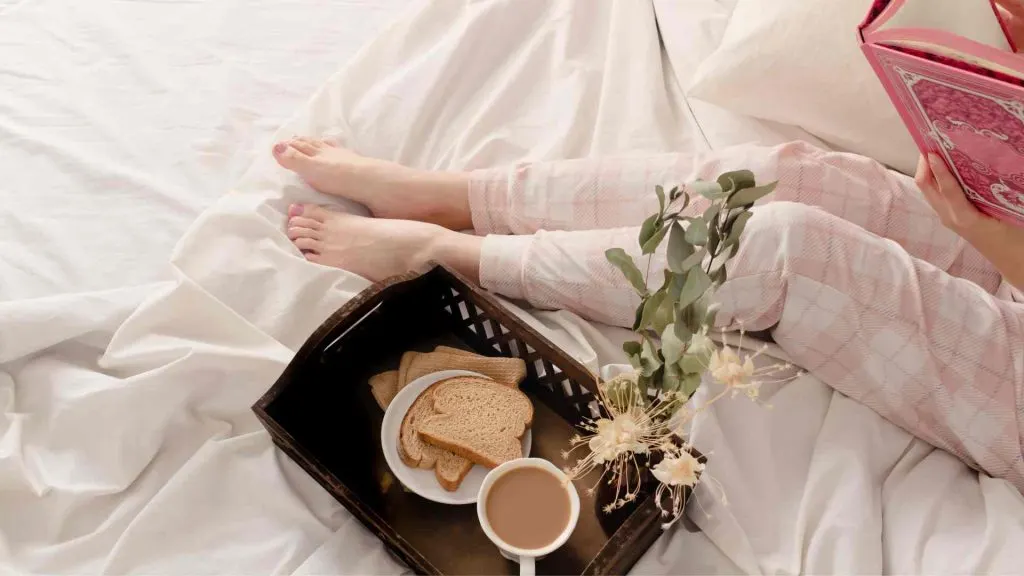
Musical Relaxation
Playing Instruments
Playing instruments is a therapeutic activity that can help you unwind and destress after a long day. It allows you to express your emotions through music, creating a sense of calmness and relaxation. Whether it’s strumming the guitar or playing the piano, the act of making music can be incredibly soothing.
Engaging in playing instruments also has physical benefits. It can improve hand-eye coordination and fine motor skills. The focus required to play an instrument can help distract your mind from worries and anxieties, promoting a state of relaxation. Moreover, the sense of accomplishment from mastering a new piece can boost your mood and overall well-being.
Incorporating playing instruments into your daily routine can be a great way to unwind and recharge. Whether you’re a beginner or an experienced musician, taking some time each day to play your favorite instrument can have significant mental health benefits. It’s not just about creating music; it’s about creating a space for yourself to relax and enjoy the moment.
Singing
Singing is another wonderful way to find relaxation through music. The act of singing releases endorphins, which are hormones that promote feelings of happiness and reduce stress. Even if you’re not a professional singer, belting out your favorite tunes can be an excellent way to lift your spirits and unwind.
One of the great things about singing is that it’s accessible to everyone. You don’t need any special equipment or training to sing; all you need is your voice. Singing along to your favorite songs can be a form of self-expression and release pent-up emotions. So next time you’re feeling stressed, try turning up the music and singing along for some instant relaxation.
Listening to Music
Listening to music is perhaps one of the simplest ways to relax and unwind. Whether it’s classical, jazz, pop, or any other genre, music has the power to evoke emotions and transport you to another world. Immersing yourself in your favorite tunes can help reduce anxiety levels and create a sense of peace.
Creating a playlist of calming or uplifting songs can be a great way to curate your own personal relaxation soundtrack. Tuning in to soothing melodies before bed can help improve sleep quality and promote relaxation. Music has been used for centuries as a form of therapy, so don’t underestimate the power of simply listening to some good tunes for your well-being.

Culinary Arts
Baking
Baking is a popular hobby that allows individuals to create delicious treats from scratch in the comfort of their own homes. Whether it’s whipping up a batch of cookies or crafting an intricate cake, baking provides a creative outlet that can be both relaxing and rewarding. The process of measuring ingredients, mixing batter, and watching as your creations rise and transform in the oven can be incredibly therapeutic.
Engaging in baking as a hobby also offers the opportunity to experiment with different flavors, textures, and decorations. From classic chocolate chip cookies to elaborate fondant cakes, there is a wide range of recipes to explore based on personal preferences and skill levels. Sharing baked goods with friends and family can bring joy not only to the baker but also to those who get to enjoy the delicious results.
For those looking to enhance their baking skills further, online tutorials and recipe blogs provide a wealth of resources for honing techniques and learning new tricks. Joining baking communities or attending workshops can also offer valuable insights from experienced bakers and foster a sense of camaraderie among enthusiasts. Overall, baking serves as a delightful way to unwind, express creativity, and indulge in sweet delights.
Cooking Classes
Taking up cooking classes is another fantastic way to relax while expanding culinary skills. These classes provide hands-on experience in preparing various dishes under the guidance of professional chefs. Whether it’s mastering the art of sushi rolling or perfecting pasta-making techniques, cooking classes offer a fun and educational environment for aspiring home cooks.
Attending cooking classes not only equips individuals with practical kitchen knowledge but also introduces them to new cuisines and flavor profiles. Exploring different cooking styles from around the world can broaden one’s palate and inspire creativity in the kitchen. Moreover, interacting with fellow food enthusiasts during classes can lead to lasting friendships built on a shared passion for food.
One of the key benefits of participating in cooking classes is gaining confidence in culinary abilities. As individuals learn new recipes and techniques, they become more comfortable experimenting with ingredients and flavors on their own. This newfound confidence often translates into everyday cooking at home, where individuals can whip up delicious meals with ease and flair.
Wine Tasting
Wine tasting is an elegant pastime that allows enthusiasts to savor different varieties of wines while learning about their unique characteristics. Whether attending vineyard tours or hosting wine tastings at home, exploring the world of wine can be both educational and enjoyable. The process involves examining the color, aroma, taste, and finish of each wine to appreciate its nuances fully.
Participating in wine tasting events or clubs provides an opportunity to discover new favorites and expand one’s knowledge of winemaking regions and grape varietals. Engaging in discussions with sommeliers or fellow wine connoisseurs can deepen understanding about pairing wines with foods and enhancing dining experiences. Hosting wine tasting gatherings at home offers a social setting for friends to bond over shared interests in oenology.
Developing a discerning palate through wine tasting enables individuals to appreciate fine wines on a deeper level while refining their sensory perceptions. By exploring different styles of wines such as reds, whites, rosés, or sparkling varieties, enthusiasts can cultivate an appreciation for the complexity and artistry behind winemaking. Ultimately, wine tasting serves as a sophisticated yet approachable hobby for those seeking relaxation through refined indulgence.
Digital Detox
Limiting Screen Time
Many people find solace in hobbies that involve limited screen time. By reducing the hours spent on devices, individuals can engage in more fulfilling activities. Limiting screen time can improve mental health by reducing stress and anxiety levels.
Engaging in hands-on hobbies like painting, gardening, or knitting can be a great way to unwind. These activities allow individuals to disconnect from the digital world and focus on the present moment. Setting specific time limits for screen usage each day can help create a healthier balance.
Creating a schedule that includes designated times for screen use and non-screen activities is beneficial. This structured approach helps individuals prioritize their hobbies and allocate time for relaxation without distractions. By limiting screen time, individuals can enhance their creativity and boost their overall well-being.
Tech-Free Zones
Establishing tech-free zones in living spaces can promote relaxation and family bonding. Designating areas such as the dining room or bedroom as tech-free zones encourages face-to-face interactions and fosters better communication. Having spaces where screens are not allowed can improve sleep quality and reduce digital dependency.
Family members can engage in board games, reading, or other shared activities in these tech-free zones. This promotes quality time spent together without the distraction of screens. Creating boundaries around technology usage within the home environment is essential for maintaining healthy relationships and promoting mental well-being.
Incorporating tech-free zones into daily routines can have a positive impact on overall family dynamics. Encouraging open conversations and interactions without screens can strengthen emotional connections among family members. Tech-free zones provide opportunities for genuine engagement and meaningful conversations.
Unplugging Rituals
Developing unplugging rituals before bedtime can improve sleep quality and mental clarity. Engaging in calming activities like reading a book or practicing mindfulness meditation before bed helps signal to the brain that it’s time to unwind. Establishing a bedtime routine that involves minimal screen exposure aids in relaxation and promotes restful sleep.
Creating a habit of disconnecting from screens at least an hour before bedtime is beneficial for cognitive function. Reducing exposure to blue light emitted by screens helps regulate the body’s natural sleep-wake cycle. Unplugging rituals contribute to better sleep hygiene and overall well-being.
Individuals can also incorporate unplugging rituals into their morning routines to start the day off on a positive note.
Taking time away from screens in the morning allows for peaceful reflection and mental preparation for the day ahead. Developing habits that prioritize unplugging from technology fosters mindfulness and enhances productivity throughout the day.

Community Engagement
Volunteer Work
Engaging in volunteer work can be a fulfilling way to spend your time. It allows you to give back to the community and make a positive impact. Volunteering not only benefits others but also promotes personal growth and self-esteem.
Volunteer work comes in various forms, such as helping at local shelters, participating in environmental clean-up projects, or assisting at community events. This diverse range of opportunities ensures that there is something for everyone interested in giving back to society.
Moreover, volunteering provides a chance to meet like-minded individuals and build meaningful connections. By working together towards a common goal, volunteers often develop strong bonds and create a sense of belonging within the community.
Book Clubs
Joining a book club is an excellent way to engage with literature while socializing with others who share your passion for reading. Book clubs typically meet regularly to discuss selected books, providing an opportunity for intellectual stimulation and lively conversations.
In a book club setting, members can share their thoughts on the plot, characters, and themes of the chosen book. This exchange of ideas fosters critical thinking skills and allows participants to gain new perspectives on literary works they may not have considered before.
Book clubs offer a platform for individuals to expand their reading horizons by exploring genres or authors they might not have encountered otherwise. This exposure to diverse literary works can broaden one’s knowledge base and enhance their overall reading experience.
Art Classes
Taking up art classes can be a therapeutic and creative outlet for individuals looking to relax and unwind. Whether it’s painting, drawing, pottery, or sculpture, engaging in art allows individuals to express themselves artistically and tap into their inner creativity.
Art classes provide a structured environment where participants can learn new techniques, experiment with different mediums, and hone their artistic skills under the guidance of experienced instructors. This structured learning approach helps individuals progress in their artistic journey while having fun in the process.
Furthermore, art classes offer a break from daily routines and allow individuals to focus solely on creating art without distractions. This immersion in the artistic process can be meditative and calming, providing a much-needed escape from the stresses of everyday life.
Incorporating Routine
Daily Habits
Establishing a routine involves incorporating daily habits that promote relaxation and well-being. Begin your day with a calming activity like meditation or a leisurely walk. These small actions can set a positive tone for the rest of the day.
Engage in activities that bring you joy and peace throughout the day. Whether it’s reading a book, practicing yoga, or enjoying a cup of tea, make time for activities that help you unwind. Routine is about finding moments of tranquility amidst the busyness of life.
Create designated times for self-care rituals such as skincare routines or taking a warm bath. These moments not only relax your body but also provide mental clarity and rejuvenation. Prioritize activities that nourish your soul and contribute to your overall well-being.
Weekly Plans
Incorporating routine into your weekly plans can enhance your sense of balance and fulfillment. Designate specific days for hobbies or activities you enjoy, whether it’s painting, gardening, or cooking. Having these planned moments can create anticipation and excitement throughout the week.
Consider setting aside time each week for physical exercise or outdoor adventures. Engaging in activities like hiking or cycling not only promotes physical health but also boosts mood and reduces stress levels. Routine helps in maintaining a healthy work-life balance by ensuring you make time for things that bring you happiness.
Use weekends to unwind and engage in leisurely pursuits that recharge your energy levels. Whether it’s spending time with loved ones, exploring nature, or trying out new recipes, incorporating these activities into your weekly routine can foster a sense of fulfillment and contentment.
Setting Goals
When establishing a routine, setting achievable goals plays a vital role in maintaining consistency and motivation. Start by identifying areas where you want to introduce more structure or relaxation into your daily life. Set realistic goals that align with your interests and values.
List down specific actions or tasks related to your chosen hobbies or relaxation practices. Breaking down larger goals into smaller steps makes them more manageable and increases the likelihood of success. Incorporating goal-setting into your routine helps track progress and celebrate achievements along the way.
Regularly reassess your goals to ensure they remain relevant and challenging enough to keep you engaged. Adjusting your objectives based on changing priorities or interests allows for continuous growth and personal development within your established routine. By setting meaningful goals, you cultivate a sense of purpose and direction in your daily life.
Tips and Tricks
Starting Slowly
Begin by exploring simple ideas like coloring books or easy puzzles to ease into the hobby world.
Take your time to adjust to the new activity, allowing yourself to enjoy the process without pressure.
Consider trying a new activity for just a few minutes each day, gradually increasing the duration as you get more comfortable.
Seeking Support
Engage with online communities or local clubs to connect with others sharing similar interests.
Joining a group can provide valuable tips, motivation, and a sense of camaraderie in your hobby journey.
Seek guidance from experienced hobbyists who can offer insights, recommendations, and encouragement along the way.
Tracking Progress
Maintain a journal or digital log to document your experiences, progress, and any challenges faced.
Setting small goals and tracking your achievements can boost motivation and keep you engaged in your hobby.
Reflect on how far you’ve come since starting your hobby to appreciate your growth and accomplishments.
Closing Thoughts
Incorporating relaxing hobbies into your routine can significantly enhance your overall well-being. From engaging in creative crafts to enjoying outdoor pursuits, these activities offer a multitude of benefits for your mental and physical health.
By taking the time to unwind and focus on activities that bring you joy, you are prioritizing self-care and stress relief in your daily life.
As you explore different hobbies mentioned in this article, remember that the key is to find what resonates with you personally.
Whether it’s trying out a new recipe, picking up a musical instrument, or simply disconnecting from technology, each activity contributes to your relaxation and happiness. So, go ahead and start incorporating these hobbies into your life today for a more balanced and fulfilling lifestyle.
Frequently Asked Questions
What are the benefits of engaging in relaxing hobbies?
Engaging in relaxing hobbies can help reduce stress, improve mental well-being, boost creativity, enhance focus, and provide a sense of accomplishment. These activities offer a break from daily routines and promote overall relaxation and happiness.
How can I choose the right hobby for relaxation?
To choose the right hobby for relaxation, consider your interests, preferences, available time, and budget. Experiment with different activities to find what brings you joy and helps you unwind. Whether it’s crafting, outdoor pursuits, or culinary arts, select what resonates with you.
How can creative crafts contribute to relaxation?
Creative crafts such as painting, knitting, or woodworking can be meditative and calming. Engaging in these activities allows you to express yourself artistically, relieve stress, and enter a state of flow where worries fade away. Crafting promotes mindfulness and enhances your overall well-being.
Why is community engagement important in hobbies for relaxation?
Community engagement through hobbies provides social connections, support networks, and a sense of belonging. Participating in group activities or volunteering not only fosters relationships but also boosts self-esteem and mental health. Sharing interests with others can add depth and meaning to your relaxation pursuits.
How can one incorporate routine into their relaxing hobbies?
Incorporating routine into relaxing hobbies helps establish consistency and discipline. Setting aside dedicated time for your chosen activities ensures you prioritize self-care and maintain a healthy work-life balance. Consistent engagement with hobbies can lead to increased relaxation benefits over time.
